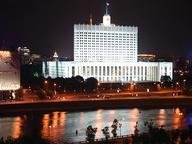Quiz Answer Key and Fun Facts
1. What was Khrushchev's first name?
2. Where was Khrushchev from?
3. In what year did Khrushchev join the Communist Party?
4. During the power struggles in the Party following Lenin's death in 1924, Khrushchev allied himself with Kagonovich and Stalin against which other politburo members?
5. By 1939, Khrushchev was a full politburo member. In the late 1930s, while in Moscow, what did Khrushchev oversee that helped speed his rapid political rise?
6. By 1941, when Hitler invaded the Soviet Union, Khrushchev had survived the bloody Stalinist purges and had risen to this position:
7. When Stalin died in 1953, Khrushchev was seen as his natural successor.
8. At the 20th Party Congress in 1956, Khrushchev delivered a historic bombshell. What was it?
9. Despite many of Khrushchev's democratic bells and whistles, he remained a protégé of a brutal dictator and retained many dictatorial characteristics. In 1956, he sent troops to brutally suppress a revolt where?
10. 1957 was a great year for Khrushchev. Crops were good, industrial output had reached new highs, and more average citizens had a higher quality of life than ever before. 1957 also saw the start of a new "race" with the West, what race was this?
11. Relations with the West can best be described as "highs" and "lows". 1959 was a "high" year for Khrushchev and Soviet foreign policy, climaxing with what historic event?
12. 1960, unfortunately, was a "low" year for Soviet foreign relations. What two events were the big disasters for the USSR?
13. Khrushchev was a man of polar opposites; his policy with the West (in theory) seemed to be in direct conflict with many of his actions, such as sending missiles to Cuba and building a wall through Berlin. What was the term coined to describe his foreign policy?
14. Other than Gorbachev, Khrushchev is the only General Secretary not to serve until his death.
15. Khrushchev's full memoirs were published in the USSR and the US following his death in 1971.
Source: Author
Mrs_Seizmagraff
This quiz was reviewed by FunTrivia editor
thejazzkickazz before going online.
Any errors found in FunTrivia content are routinely corrected through our feedback system.


